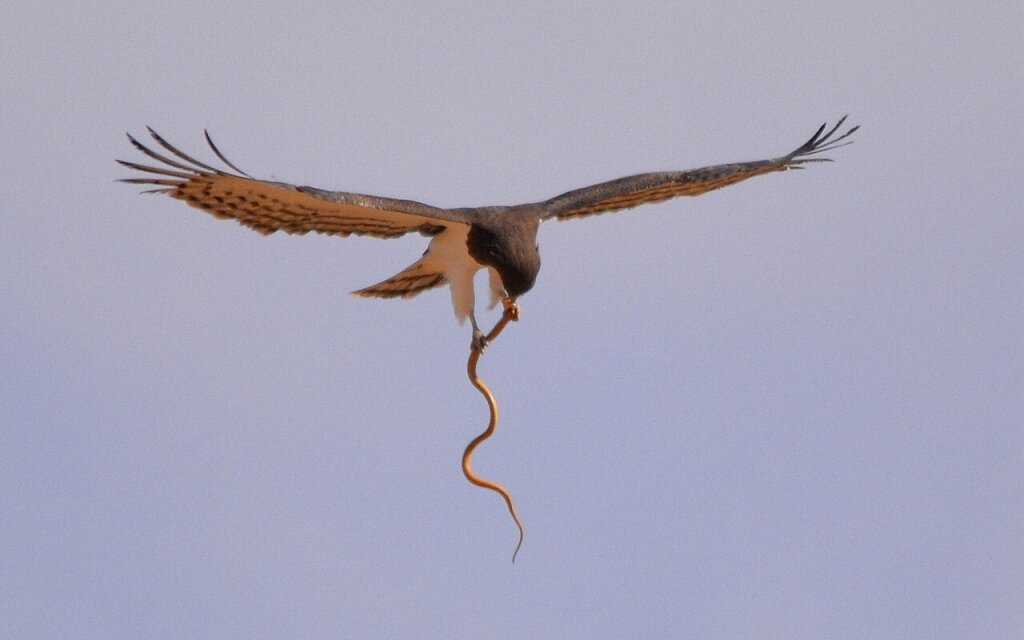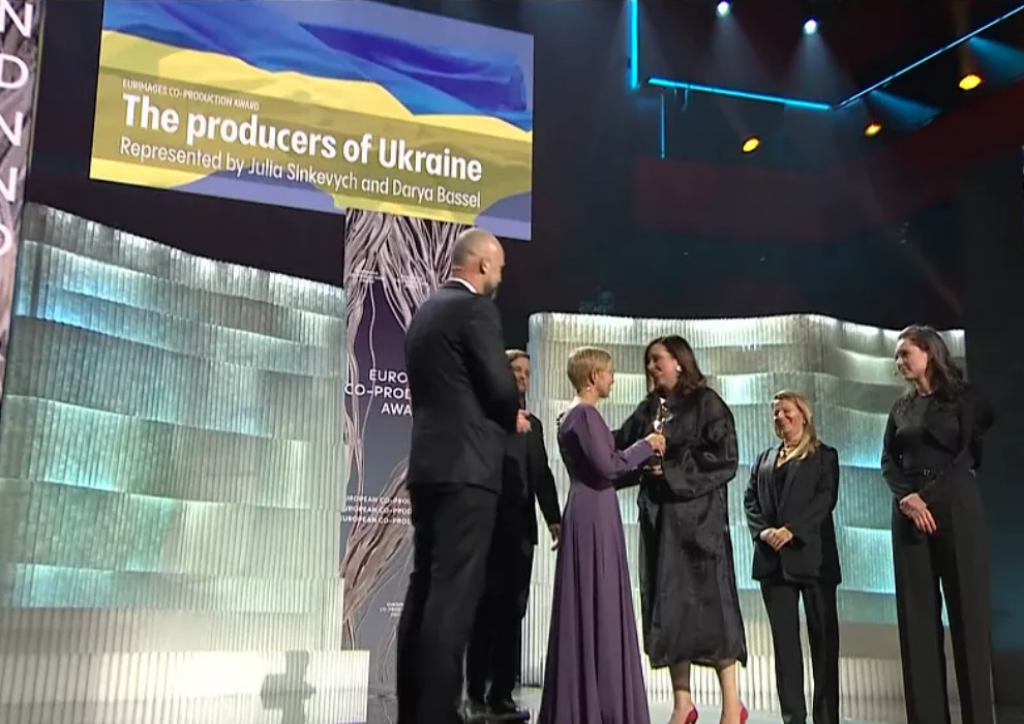This post won the Culture Studies Grand Prize in the Jordan Center Blog's fourth annual Graduate Student Essay Competition.
Kathleen Mitchell-Fox is a PhD candidate in the Department of Slavic Languages and Literatures at Princeton University. She is currently writing her dissertation on the concept of “voice as device” in Russophone radical poetics of the twentieth and twenty-first centuries.
After Russia launched its full-scale invasion of Ukraine in February 2022, outpourings of Russophone poetry were circulated online. These acts of textual sharing served multiple purposes: from demonstrations of support and solidarity, to exhibitions of remorse, to exposés of the imperial dimensions of the Russian literary canon. Russian poetry was recontextualized through attention to post-Soviet interventionist military aggression and historic Russian and Soviet empires. In the process, readers and commentators challenged long-held assumptions about the separation of poetics and politics.
One of the works that resurfaced online in this period was Joseph Brodsky’s (1940-1996) notorious poem “On the Independence of Ukraine” (1992). Here, the poet bitterly suggests that, on their deathbeds, Ukrainians will gasp out lines by Aleksandr Pushkin (1799-1837) rather than Ukrainian national poet Taras Shevchenko (1814-1846). “On the Independence of Ukraine” might lead readers to the less infamous, but similarly vitriolic, “On the Talks at Kabul” (1992), which treats the post-Soviet withdrawal of support and resources from Afghanistan, where it had waged war from 1979 to 1989.
Both displays of Russian chauvinism date to the later years of Brodsky’s exile from the Soviet Union. In the contemporary reader, these poems may evoke anger, embarrassment, shame and, perhaps, confusion: why would Brodsky—who was known to despise the Soviet Union—pen poems in which he appears to lament its collapse? Examining the intertexts in “On the Talks at Kabul” in particular can help answer this question, revealing that Brodsky’s very idea of poetry was structurally dependent on imperial politics.
Devastating geopolitical events prompt discussions about what art can do to share, support, and inform audiences, but at first glance, intertextuality does not seem like an effective device for accomplishing any of these tasks. True, it allows readers to understand the canons in which, or against which, a given text inscribes itself. Yet intertextuality also marks a poem as self-consciously poetic and, perhaps, as seeking to retreat into its own poetics rather than attempting to strike out into potentially problematic political discourse.
As a device, intertextuality is concerned not with exacting an effect on the audience but with the possibility of creating a moment of recognition (mig uznavan’ia), in the phrase of Acmeist poet Osip Mandelshtam (1891-1938). The recognition of intertextuality can illuminate metapoetic reflections: in giving us the clues to recognize the presence-in-absence of another text, a poet asks us to reflect on how or what we recognize this poem as. Often, the light a simple “recognition” of intertextuality sheds is necessarily partial, never “decoding” the poem as a whole. Moreover, interpretations focusing on intertextuality may rely on a hierarchical construct of “the good reader,” who carries with them the “right” intertextual library to unpack the poem in question.
In Brodsky’s late poems, including “On the Talks in Kabul,” intertexts can help us see an underlying hierarchical construct of “correct” Russian poetry, and its explicit origin in imperial politics. Brodsky’s intertextuality suggests an approach to imperialism as poetic canon. The document-signing that marks the end of official Soviet influence in Afghanistan is presented through a heavily Orientalized depiction of the Afghan people, who supposedly live outside modern society, pursuing blood feuds with one another and dining on sheep and horsemeat. The poem’s final stanza arrives at the signing of negotiations between the Afghan representatives and the Soviet dignitaries:
Орел парит в эмпиреях, разглядывая с укором
змеиную подпись под договором
между вами — козлами, воспитанными в Исламе,
и прикинутыми в сплошной габардин послами,
ухмыляющимися в объектив ехидно.
The eagle soars high in the empyrean, scrutinising with reproach
the serpentine signature under the treaty
between you – goats, raised in Islam,
and ambassadors stuffed into head-to-toe wool worsted,
smirking into the lens spitefully.
Brodsky’s figure of the eagle and the snake recalls an epic simile in Mikhail Lomonosov’s (1711-1765) “Ode on the Taking of Khotin” (1739), a poem on a minor military victory that became a monumental poetic event. In Lomonosov’s nineteenth stanza, the eagle stands in for imperial Russia, while the snake represents the cowering Turks:
Как в клуб змия себя крутит,
Шипит, под камень жало кроет,
Орел когда шумя летит
И там парит, где ветр не воет[…]
Like a snake twists itself into a ball,
Hisses, and hides its sting under a stone,
When screeching, the eagle flies
And soars there, where the wind does not howl[…]
Lomonosov considered this poem exemplary, attaching it to his recommendations for reforming verse in the Russian Empire. His advocacy for syllabotonic meter was adopted by subsequent poets until, slightly less than a century later, Aleksandr Pushkin’s work became synonymous with mastery of the same iambic tetrameter in which Lomonosov’s ode was written. As poet Vladislav Khodasevich (1886-1939) would rhapsodize in 1938:
Первый звук Хотинской оды
Нам первым криком жизни стал.
The first sound of the Khotin ode
Became our first cry of life.
Not only, then, is “Ode on the Taking of Khotin” one of the foundational texts in the Russian poetic canon, it is also a deeply imperial poem itself, designed to illustrate both the political triumphs and the new poetics of the Russian Empire. In his own poem, Brodsky is thus not only borrowing an eagle and a snake from Lomonosov, but similarly re-structuring a poetics founded in imperial politics.
It is this imperial intertextuality that helps makes sense of the poem’s odd and impersonal ending. As it soars above them, the eagle regards the signatories on both the Afghan and Soviet sides of the agreement with disdain. Whereas Lomonosov’s eagle represents the Russian Empire, and his snake the Turks, for Brodsky, both the Soviet ambassadors and the Afghan people are snakes, as he signals with the serpentine signature on the treaty. Following this act of collusion, the poem devolves into darkness and loss of vision.
И больше нет ничего нет ничего не видно
ничего ничего не видно кроме
того что нет ничего благодаря трахоме
или же глазу что вырвал заклятый враг
и ничего не видно мрак
And there is no longer there is nothing nothing is visible
nothing nothing is visible apart
from that there is nothing thanks to trachoma
or that eye ripped out by a sworn enemy
and nothing is visible darkness
Given the preceding stanzas, the ending seems to come out of nowhere. Sense and syntax are replaced with a stream of unpunctuated negation. While the rest of the poem is dominated by address to the second-person plural (the Afghan people), this ending introduces what could either be an impersonal construction (“nothing is visible”) or an implied first-person perspective (“nothing is visible [to me]”). What is more, the eagle of Russian imperial might is not aligned with Soviet Russia, but with the blinded and blighted external perspective: the eagle sees and then, suddenly, nothing is to be seen.
This intertextual reading allows us to understand “On the Talks at Kabul” not as a contradiction in Brodsky’s negative attitude toward the Soviet Union, but rather as a self-conscious continuation of the imperial concerns latent within the Russian poetic tradition from its syllabotonic debut in Lomonosov. The eagle’s penetrating gaze scours both the Soviet and the Afghan “snakes” because they are undercutting what remains of Russia as an imperial power, even in its diminished Soviet incarnation. Through Lomonosov, the Russian poetic canon has its origins in the portrayal of, and praise for, imperial military action. Through Brodsky, the Russian poetic canon meets its end in the half-hearted resolution of years of violent hostilities and undue influence. Without empire, poetry collapses, disintegrating into blindness and nothingness.
In the context of Russia’s aggressive interventionism in formerly Soviet lands, “Great Russian Literature” has drawn attention for its lingering imperial allegiances. Russian literature has lost the special status it enjoyed during the Imperial and Soviet periods as an aesthetic, moral, and even spiritual alternative to the political regime—as what Aleksandr Solzhenitsyn (1918-2008) called a “second government [pravitel’stvo’]”. It is toward this status that Brodsky seems to orient himself when he remarks, in his famous 1972 letter to Leonid Brezhnev (1906-1982), “In ceasing to be a citizen of the USSR, I do not cease to be a Russian poet.” Yet as Brodsky’s own life and works demonstrate, what the Soviet Russian and imperial Russian identities have in common is empire.
Intertextuality consists not only of the receding horizon of elusive and unrecognized texts but the relational dynamics between them, which may be both poetic and political. In “On the Talks at Kabul,” intertexts illuminate the hierarchical and hegemonic structuring principles at stake. Brodsky uses intertextuality not only to convey the resentments and remunerations of empire but also to stage these as his own structures of poetic canon and collapse.



